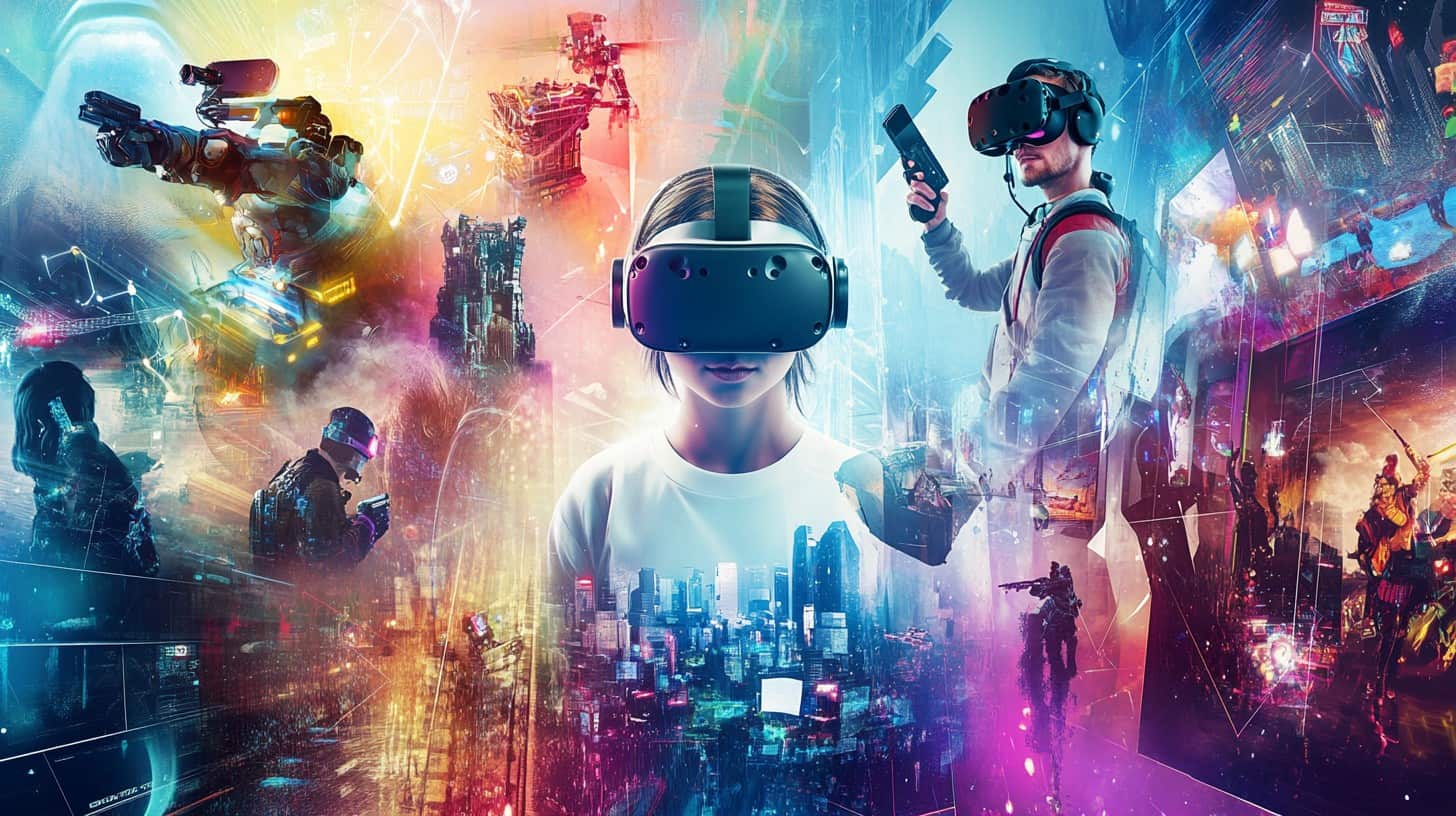Ever felt left out of gaming conversations? You’re not alone. Video games have become a big part of our world. This article will show you nine ways gaming has changed society.
Get ready to see how games have shaped our culture.
Key Takeaways
Gaming has become a major part of society, with 71% of Americans aged 6-49 playing video games in 2011.
The average gamer in 2016 was 31 years old, with a nearly even split between male (59%) and female (41%) players.
Mobile gaming now makes up almost 35% of the total video game market, with over half of people aged 6-49 using phones or tablets to play.
eSports has grown into a serious competitive sport, offering large cash prizes and drawing massive audiences both in-person and online.
Video games have influenced other media, inspiring successful film adaptations like Detective Pikachu and Sonic the Hedgehog, as well as shaping music trends through game soundtracks and remixes.
Table of Contents
Understanding Video Game Culture
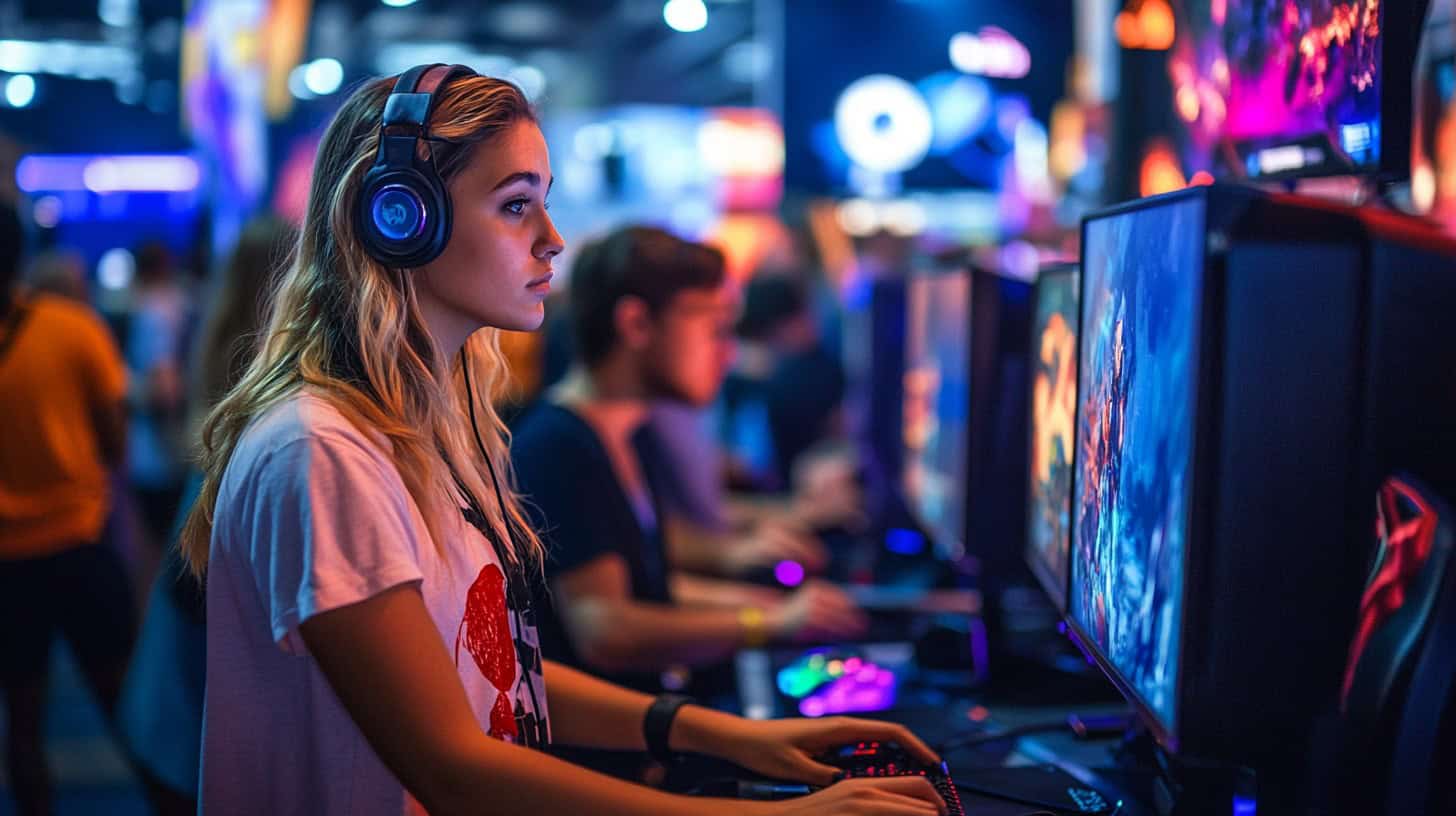
Video game culture has grown into a global force. It’s not just about playing games anymore. Gamers form tight-knit groups and share a unique language. A 2011 ESA report showed 71% of Americans aged 6-49 played video games.
That’s a huge chunk of society! The average gamer in 2016 was 31 years old, proving it’s not just for kids.
The rise of online gaming has also led to an increase in virtual gambling, with casino Canada platforms becoming increasingly popular among adult gamers.
Gaming brings people together across ages and genders. In 2016, the split was 59% male and 41% female gamers. This near-even mix shows how gaming appeals to everyone. Online worlds like “World of Warcraft” let players team up and make friends.
Streaming sites such as Twitch have turned gaming into a spectator sport. As one gamer put it:.
Gaming isn’t just a hobby, it’s a lifestyle that connects us all.
Tracing the Evolution of Gaming Platforms
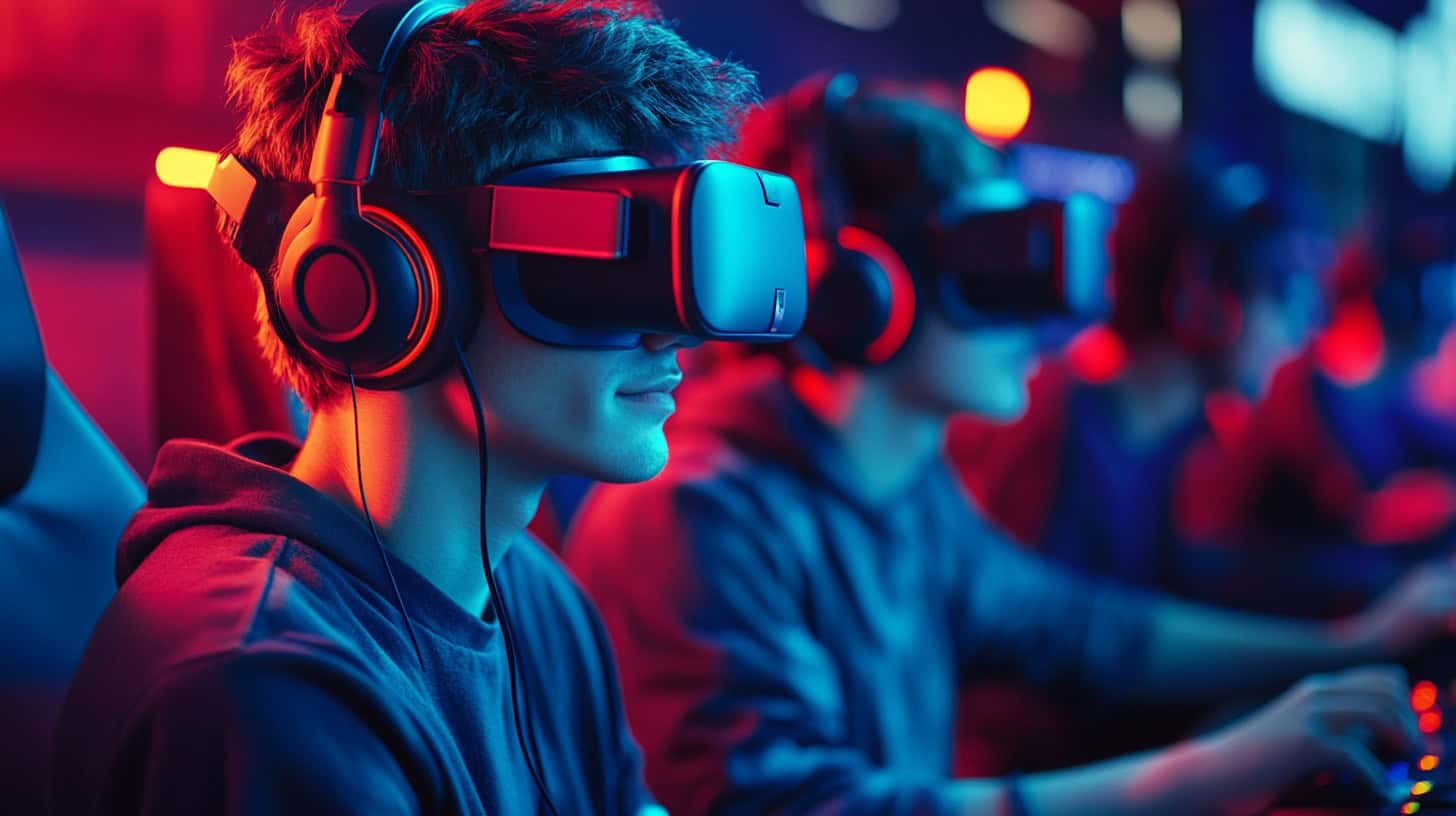
Gaming platforms have changed a lot over time. From arcade machines to home consoles and now mobile devices, each step has brought new ways to play.
Transition From Arcades to Consoles
Arcades ruled the gaming world in the 1970s and early 1980s. Pong, released in 1972, started the craze. People flocked to arcades to play Space Invaders and Donkey Kong. These games were simple but fun.
They used coins and made money fast.
Home consoles changed everything. Atari and Nintendo brought games into living rooms. No more quarters needed! Cartridges let players swap games easily. Sega joined in with Sonic and sports titles.
Some ‘fake gamers‘ missed the arcade vibe, but most loved playing at home. The shift to consoles opened up new game types and stories. Next, we’ll look at how PC gaming emerged alongside consoles.
Emergence of PC Gaming
As arcades faded, PC gaming rose to power. Personal computers became more common in homes during the 1980s and 1990s. This shift brought new types of games and ways to play.
PC gaming offered unique features that consoles couldn’t match. Games like Doom (1993) pushed graphics and gameplay to new levels. Its 3D graphics and violent content sparked debate.
PCs also allowed for easy online play. Quake let up to 32 players battle in 3D worlds. This paved the way for organized clans and competitive gaming. PC gaming’s flexibility and power continue to attract players today.
PC gaming isn’t just a hobby, it’s a lifestyle. – Anonymous gamer
Surge in Mobile Gaming Popularity
Mobile gaming has taken off since 2007. It now makes up nearly 35% of the total video game market. This growth is huge. More than half of people aged 6 to 49 use phones or tablets to play games.
These games often link to social media, making them more fun to play with friends.
Cloud gaming is changing how we play, too. It lets people enjoy high-end games on basic systems or TVs. Gamers can now chat easily using apps like Discord or Reddit. TV channels show ads for games based on who’s watching.
Impact of Online Gaming
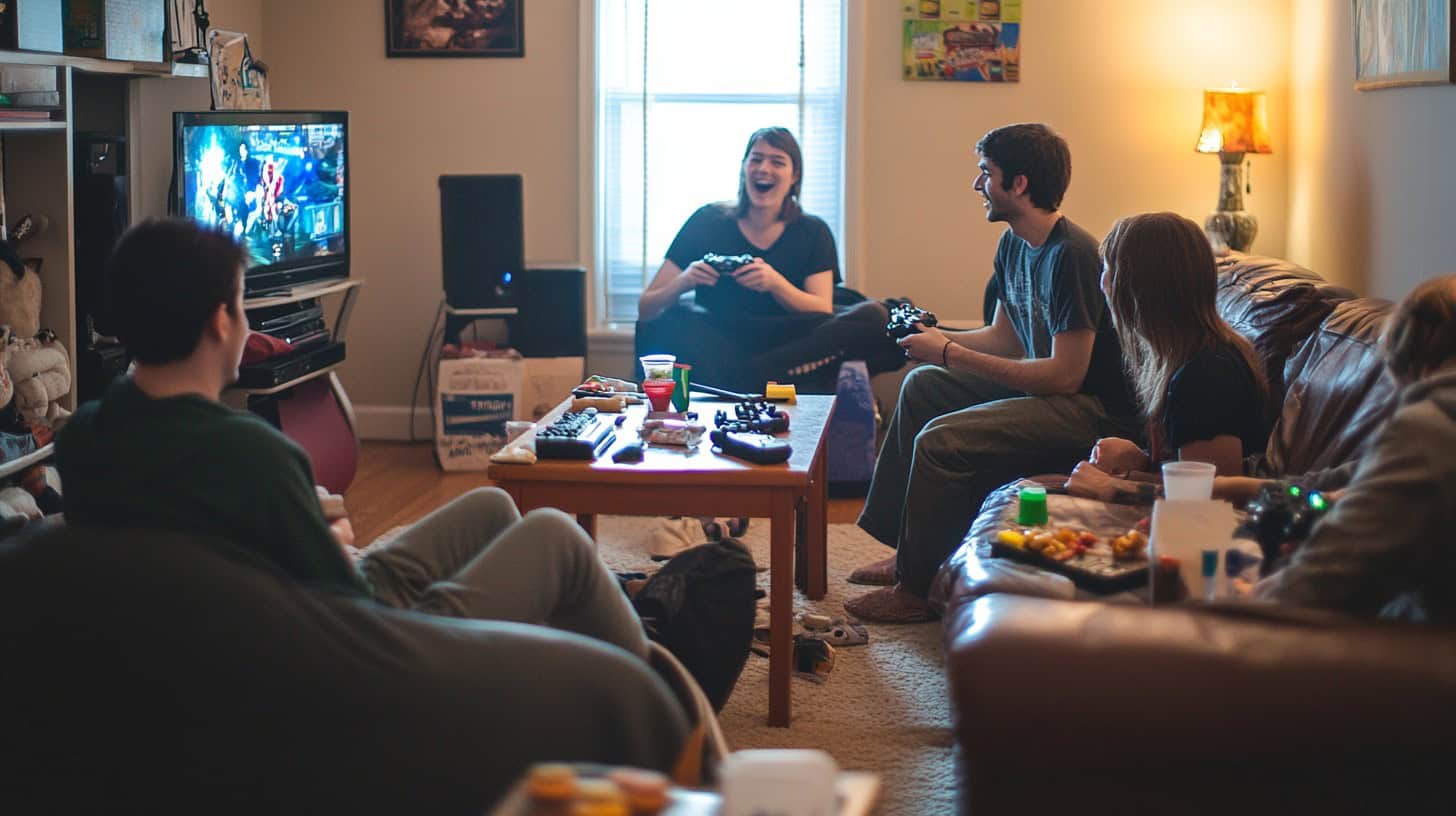
Online gaming has changed how we play and connect. It’s brought us new ways to team up and compete. Want to know more about how online gaming shapes our world? Keep reading!
Development of Multiplayer Gaming Experiences
Multiplayer gaming took off with the rise of the internet. Gamers could now play with friends across the globe, not just in the same room. This shift led to new ways for players to talk and work together.
Platforms like Discord and TeamSpeak became popular for chatting during games.
Games grew beyond just shooting. Now, players could join massive online worlds with thousands of others. These virtual spaces created new types of communities. Gamers formed groups called guilds to take on big challenges together.
Console makers caught on too. Soon, all major systems let people play online with friends.
Growth of eSports and Competitive Gaming
eSports has exploded in popularity, turning video gaming into a serious sport. Big tournaments now offer huge cash prizes, drawing pro gamers and massive crowds. The average online gamer is 33 years old, showing this isn’t just for kids anymore.
Competitive gaming has grown up, with formal leagues and events that rival traditional sports.
eSports is the future of competition – Pro gamer Ninja
Multiplayer games like League of Legends and Counter-Strike fuel the eSports scene. Fans pack arenas to watch top teams battle it out. Online streaming lets millions more tune in from home.
This mix of skill, strategy, and spectacle has made competitive gaming a global phenomenon. It’s creating new careers and reshaping entertainment for a digital age.
Shifts in Gaming Community Culture
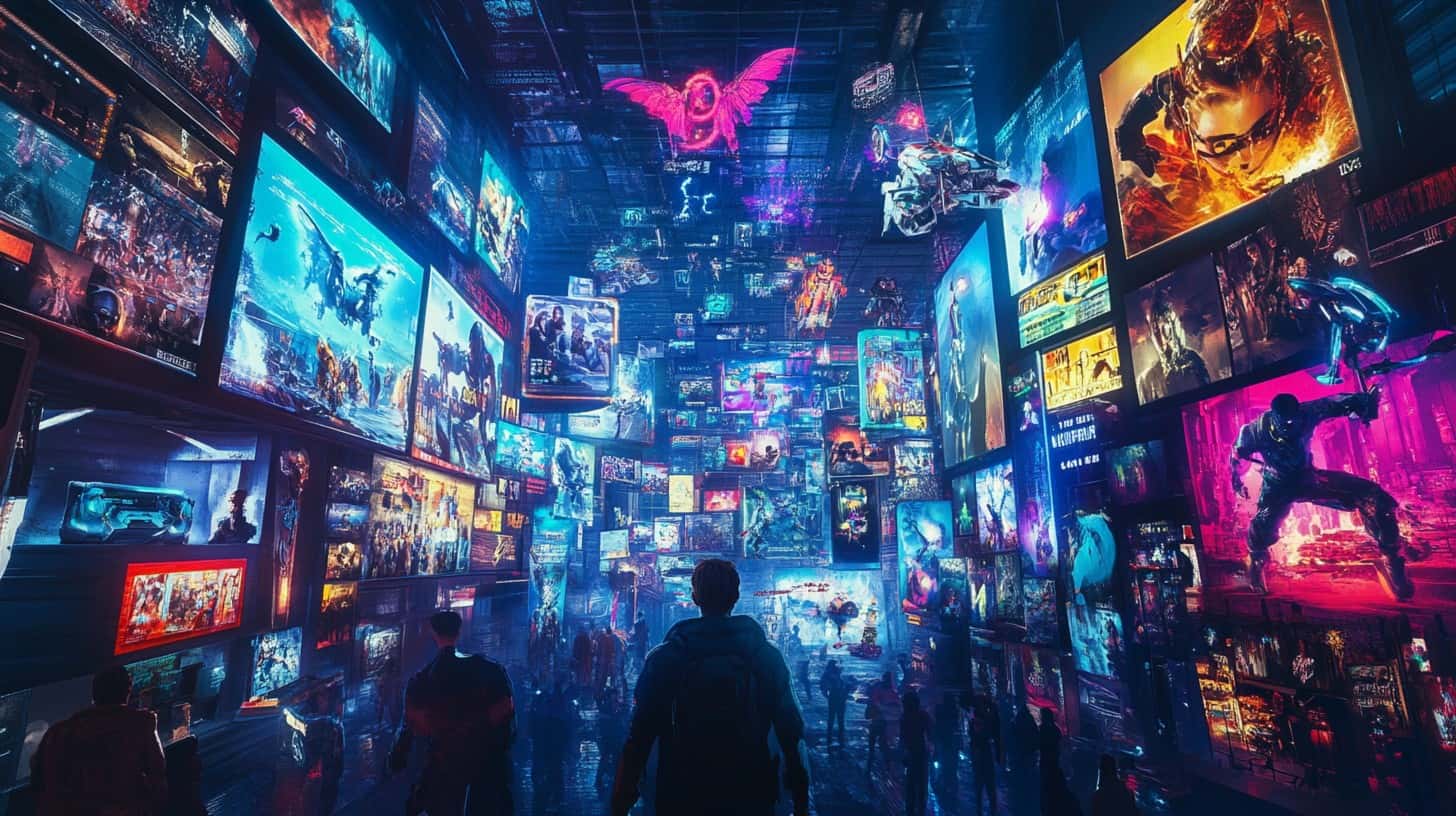
Gaming culture has changed a lot over time. Gamers now come from all walks of life. Want to know more about how gaming brings people together? Keep reading!
Changes in Gamer Demographics
Gamers aren’t just kids anymore. In 2016, the average age of video game players hit 31 years old. This shift shows how gaming has grown up with its fans. People who played Nintendo as kids now game as adults, too.
The gender gap in gaming is closing fast. A 2016 study found 59% of gamers were male and 41% were female. This near-even split proves gaming isn’t just for boys. More women are picking up controllers and joining online games.
These changes mean game makers must think about all types of players when creating new titles.
Increasing Gender Diversity in Gaming
As gamer demographics shift, gender diversity in gaming grows. Female gamers now make up 41% of players, nearly equal to males at 59%. This change brings new voices and ideas to video game communities.
Yet, many women hide their gender online due to fear of harassment.
The game industry still lacks female representation. Women hold only 3% of programming jobs and 11% of design roles. Female developers face stereotypes and unfair treatment at work.
The #1ReasonWhy hashtag on social media sites sheds light on these issues. It shows why more women don’t join the video game industry.
Evolution of Gaming Slang and Terminology
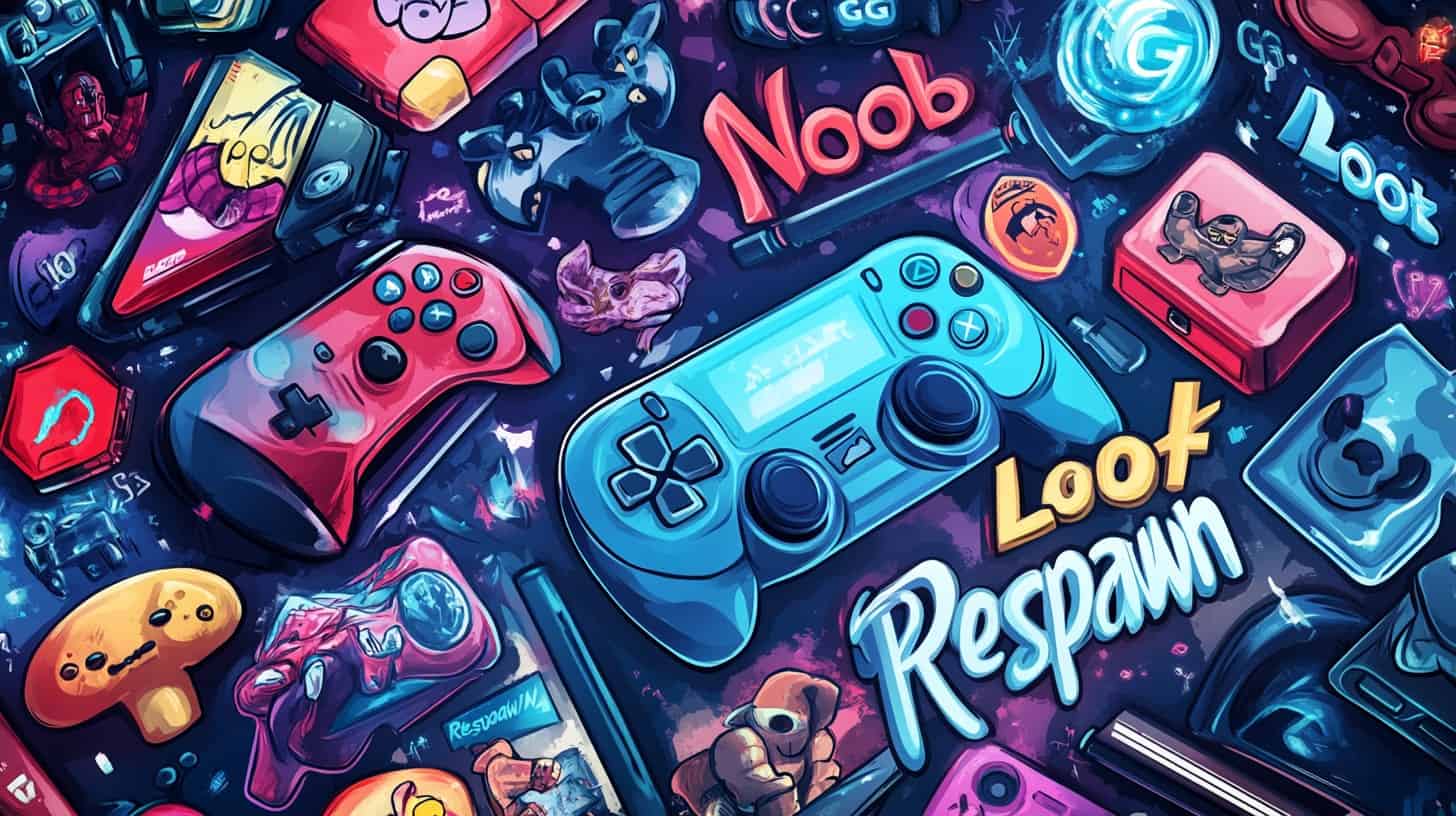
Gaming slang has grown from simple terms to a rich language all its own. Gamers use unique words and phrases that reflect their shared experiences. This special lingo helps build bonds in the gaming world.
Want to learn more about how gaming talk has changed? Keep reading!
How Gaming Terms Reflect Culture
Gamer lingo shows how video game culture has grown. Terms like “pwn” and “noob” are now part of everyday speech. These words started in games but spread far beyond. They reflect the global reach of gaming and its impact on society.
Gamers share a special language that bonds them. Phrases like “GL HF” and “GG” are common in online matches. These short codes help players connect across borders. They show how gaming brings people together in new ways.
As a gamer, I’ve seen firsthand how this shared language creates a sense of community.
Gaming’s Influence on Other Forms of Media
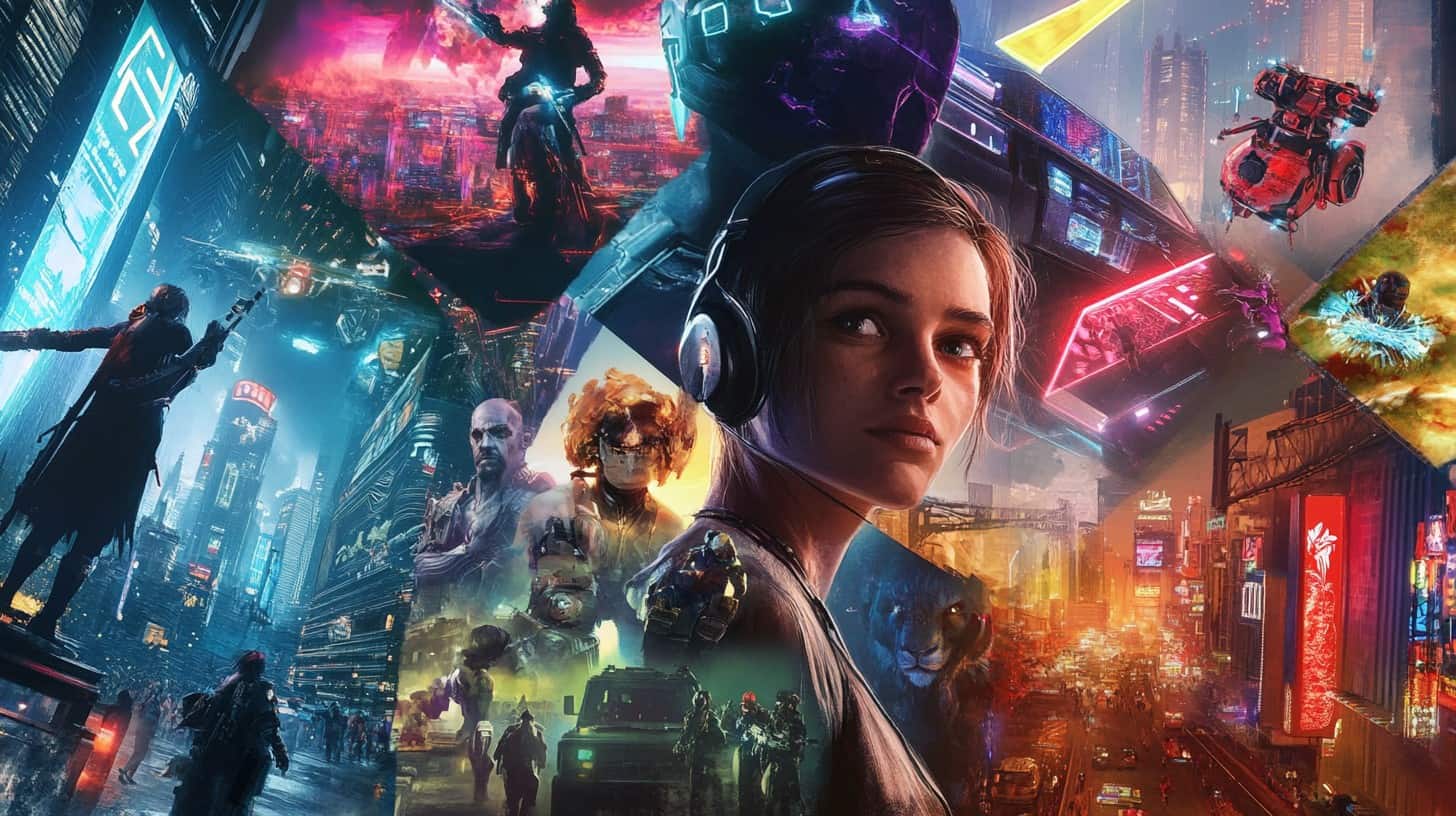
Video games have shaped movies and music in big ways. Games like “Final Fantasy” and “Dragon’s Lair” have inspired films, while game music has created new genres like chiptunes.
Crossovers Between Video Games and Films
Video games and movies have joined forces in exciting ways. Films based on games like Street Fighter and Resident Evil hit theaters years ago. But recent movies like Detective Pikachu and Sonic the Hedgehog in 2019 changed the game.
These films showed that game adaptations could be both fun and successful.
Movies about games aren’t new. Tron in 1982 and WarGames in 1983 started the trend. The 2010s brought a new twist. Films like Ready Player One and Free Guy used games as virtual worlds.
This blend of games and movies keeps growing. Interactive movies even popped up in the mid-1990s. Dragon’s Lair, from 1983, was the first of its kind.
Video games are the new Hollywood. – Dan Houser, co-founder of Rockstar Games
How Games Shape Music Trends
Video games have changed the music world in big ways. Game soundtracks now inspire popular music styles like hip-hop and electro. Live orchestras even play versions of video game music in concert halls.
This shows how much people love these tunes.
Game music has spread far beyond consoles and arcades. YouTube and streaming services have made it easy for fans to listen anytime. Sites like OverClocked ReMix let people share their own remixes of game songs.
These trends prove that video game music has become a major force in today’s music scene.
Examining Social Aspects of Video Gaming
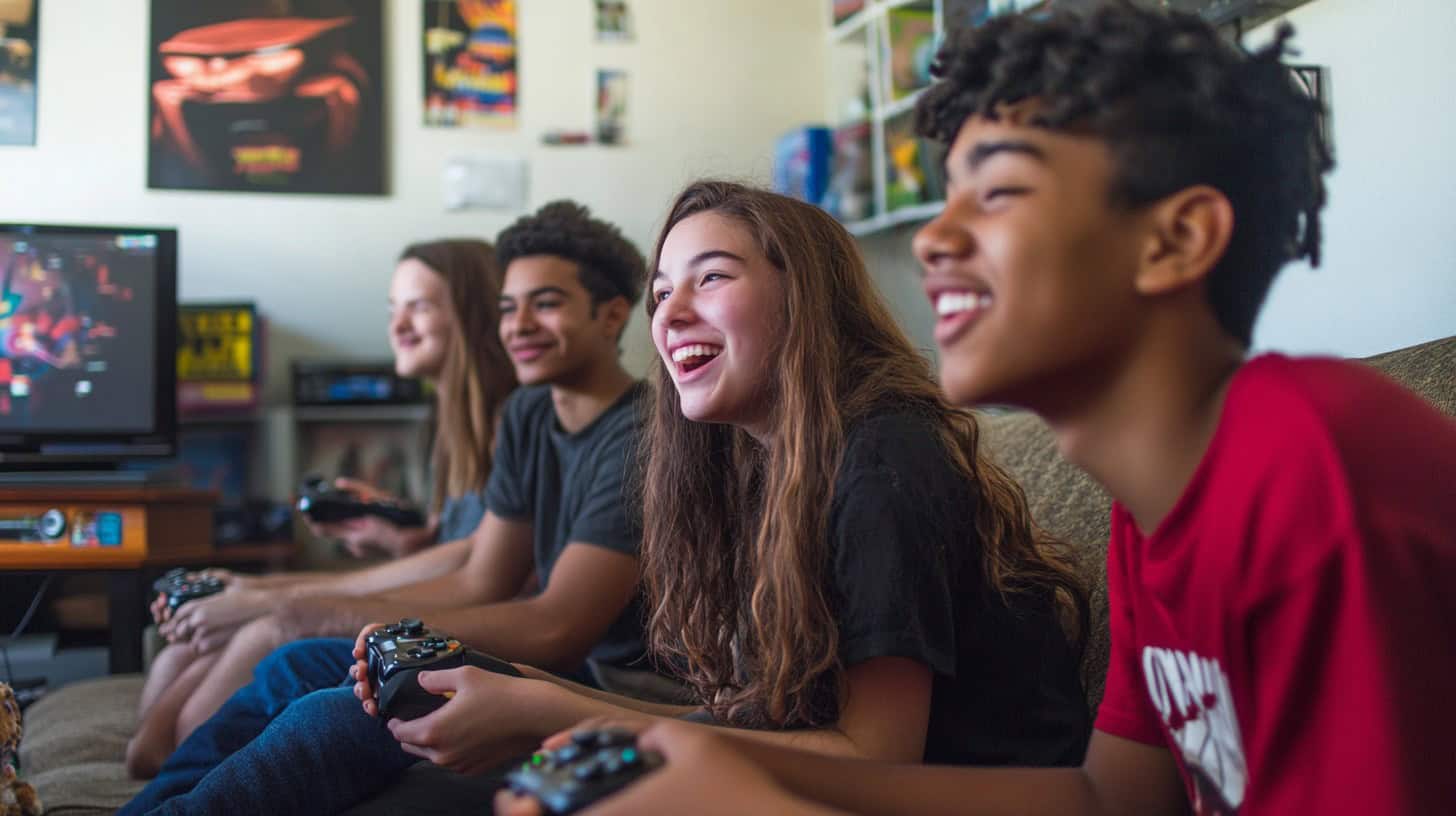
Games bring people together in new ways. They create spaces for friendships and teamwork across distances.
Comparing Social and Antisocial Gaming Behaviors
Video games spark debates on their social impact. Some say they isolate players, while others argue they create new social bonds. Let’s look at both sides:
| Social Gaming Behaviors | Antisocial Gaming Behaviors |
|---|---|
| – Online multiplayer games foster teamwork – Voice chat builds real-time connections – Gamers form lasting friendships across borders – Streaming platforms create gaming communities – eSports events bring players together in person | – Excessive gaming can lead to social withdrawal – Some players prefer solo games over group play – Toxic behavior in online games pushes people away – Gaming addiction may hurt real-life relationships – Competitive games can spark aggression |
Terry Flew points out that video games are becoming more social. David Marshall notes they create complex social interactions. Hans Geser claims virtual worlds like Second Life enhance social experiences. Many millennials see no difference between online and offline friends. Games let players share and discuss content with others.
My own gaming experiences back this up. I’ve made friends worldwide through online games. We chat daily and even meet up at conventions. Yet, I’ve also seen players get too caught up in games, neglecting real-life ties. The social impact of gaming depends on how we use it.
Using Games as Tools for Social Innovation
Games can do more than just entertain. They can solve real-world problems too. Some games bring people together to tackle big issues. These games use teamwork and group smarts to find answers.
For example, alternate reality games often need players to work as a team. They must share info and think together to win.
Social innovation games tap into the power of many minds. Players join forces to crack tough puzzles or come up with new ideas. This approach has shown promise in fields like science and city planning.
Game designers create fun ways to address serious topics. As a result, games are becoming a fresh tool for positive change in society.
Exploring the Role of Streaming in Gaming
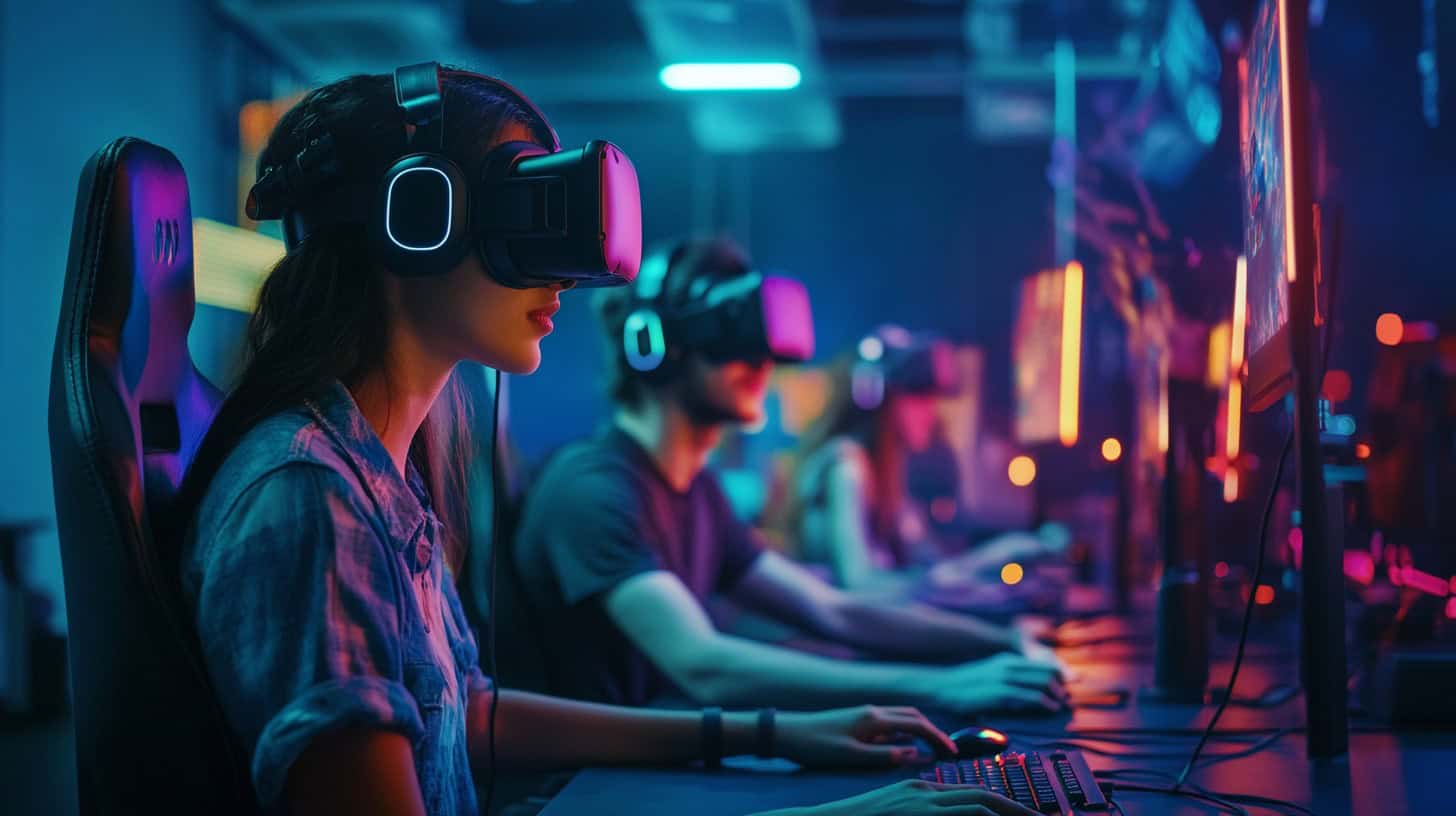
Streaming has changed how we play and watch games. Twitch and YouTube Gaming have made it easy for anyone to share their gameplay with the world.
Popular Networks for Game Streaming
Game streaming has exploded in popularity. YouTube, Twitch, and Facebook Gaming lead the pack as top platforms. These sites let gamers broadcast their gameplay live to millions of viewers.
Fans can watch pros play, learn new tricks, or just enjoy the entertainment.
Streaming has changed how people enjoy video games. It’s not just about playing anymore. Now, watching others play is a big part of gaming culture. This trend has boosted video game music too.
More people hear game soundtracks through streams. Next, let’s look at how streaming impacts game trends.
Streaming’s Impact on Game Trends
Popular streaming networks have paved the way for new game trends. Twitch and YouTube Gaming now shape what games people play and buy. Streamers showcase new titles, sparking interest among viewers.
This leads to sudden spikes in game sales and player counts.
Game devs now use streaming to their advantage. They work with popular streamers to promote their games. During COVID-19, more people watched game streams than ever before. This boosted sales for many games featured on streams.
Some games, like Among Us, became huge hits thanks to streamer attention. Streaming has changed how games become popular and how long they stay relevant.
People Also Ask
How has video gaming culture changed society?
Video gaming culture has shaped society in many ways. It has created new forms of art, like bitpop music and machinima. It has also formed virtual communities and economies in massively multiplayer online games. Gaming has even influenced internet slang and sparked debates about gender representation.
What are some key moments in video game history?
Important events include the golden age of arcade games, the rise of Nintendo’s consoles, and the growth of online gaming. The creation of iconic games like Pacman, Super Mario Bros., and Zelda also marked big steps. More recently, the rise of e-sports and virtual reality have changed gaming again.
How have video games affected language?
Video games have added many new words to our vocabulary. Gamers use special slang in chat rooms and during gameplay. Terms like “LOL” (laughing out loud) have spread beyond gaming into wider internet culture. Even non-gamers now use words that came from video games.
What impact have video games had on social issues?
Games have raised awareness about social topics. Some games tackle serious themes. But gaming culture has also faced criticism. The Gamergate event highlighted sexism in gaming. Debates continue about violence in games and fair representation of women and minorities.
How have multiplayer games changed social interaction?
Multiplayer games have created new ways for people to connect. Massive multiplayer online role-playing games let players team up from all over the world. LAN parties bring gamers together in person. These games have formed strong virtual communities and friendships.
What new art forms have come from video games?
Video games have inspired new types of art. Bitpop music uses sounds from old game systems. Machinima uses game engines to make films. Web series like Red vs. Blue and Pure Pwnage tell stories set in game worlds. Games have also influenced movies, books, and other media.
